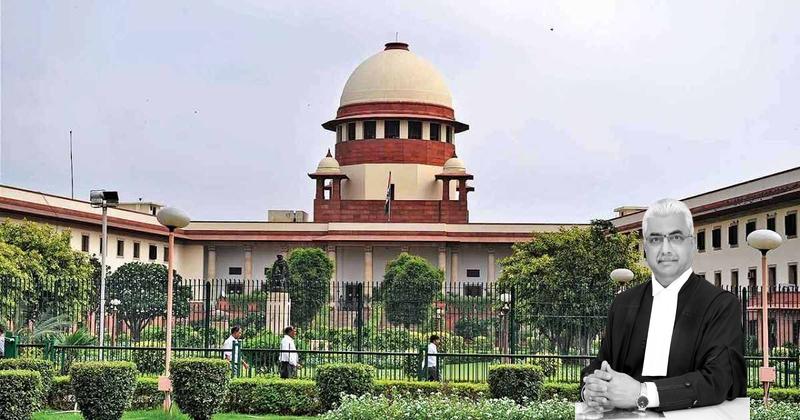Delve into the complex legal analysis of the National Company Law Tribunal’s jurisdiction in restricting the termination of Power Purchase Agreements during Corporate Insolvency Resolution Process. The case highlights the importance of understanding statutory powers and jurisdiction when dealing with insolvency proceedings. Stay tuned for a detailed exploration of the court’s interpretation and implications in the legal realm.
Facts
- NCLAT restrained the appellant from terminating the PPA even if the Corporate Debtor underwent liquidation
- Appellant was directed to pay dues for power supplied by Corporate Debtor during CIRP
- Appellant agreed to release an ad-hoc payment of Rs 50 lakhs as an interim measure
- Payment to Corporate Debtor was conditional upon submitting an undertaking for refund with interest if the appeal is allowed
- NCLT’s reasoning included prioritizing IBC provisions over PPA clauses, and considering PPA as an ‘instrument’ under Section 238 of IBC
- NCLAT’s order on 15 October 2019 dismissed the appeal by the appellant under Section 61 of IBC
- NCLT held that termination of PPA by appellant in case of liquidation was inconsistent with IBC provisions and would render Corporate Debtor defunct
- Appellant’s attempt to terminate PPA solely on the grounds of CIRP initiation was stayed by NCLT on 29 August 2019
- The decision by the NCLAT is called into question.
- An appeal challenging the order dated 20 November 2018 was dismissed by the NCLAT on 4 December 2018.
- NCLT commenced the Corporate Insolvency Resolution Process in respect of the Corporate Debtor.
- An order of moratorium was issued and the first respondent was appointed as the Interim Resolution Professional.
- An application under Section 31 of the IBC seeking approval of the Resolution Plan approved by the CoC was filed by the first respondent on 15 November 2019 before the NCLT.
Also Read: Electoral Malpractices in Mayor Election
Arguments
- Arguments made by the respondents include the jurisdiction of NCLT to consider the validity of termination of PPA due to insolvency proceedings.
- The application for staying the termination of PPA was filed under Section 60(5) of IBC.
- NCLT was deemed to have complete jurisdiction to decide on questions of priorities or any legal or factual matters related to insolvency resolution of the Corporate Debtor.
- The statutory powers of Municipal Corporation over its properties are not overridden by Section 238 of IBC.
- Respondents argue that once an application under sections 7, 9, or 10 of the IBC is admitted by the NCLT, it has jurisdiction over matters relating to the insolvency of the corporate debtor.
- The Electricity Act and the IBC are special legislations dealing with electricity-related issues and insolvency respectively.
- Section 60(5)(c) gives the NCLT wide jurisdiction over questions of law or fact in insolvency resolution proceedings.
- Argument that NCLT must be considered the exclusive forum for enforcing all the Corporate Debtor’s rights.
- Resolution Plan’s dependency on the continuation of the Power Purchase Agreement (PPA) is highlighted.
- The Resolution Plan specifics such as PPA’s significance, reason for CIRP initiation, RP’s experience, summary of resolution plan, ‘haircut’ taken by creditors, solar tariff rates, business plan, financial plan, and risks mitigation measures.
- Notable absence of equivalent provisions in CA 1956, PIA, and BRA compared to Sections 25(2)(b) and 18(f)(vi) of the IBC empowering RP in certain proceedings for the Corporate Debtor’s benefit.
- NCLT’s jurisdiction clarified to cover disputes arising from or relating to the insolvency of the Corporate Debtor.
- Reference to a judgment involving Municipal Corporation of Greater Mumbai in a case regarding defaults of the Corporate Debtor prior to CIRP initiation.
Also Read: Balancing Power and Transparency: Electoral Bonds Struck Down, Disclosure Mandated
Analysis
- The Committee noted the need to invalidate ipso facto clauses to prevent the value of a Corporate Debtor’s assets from becoming diluted during the insolvency process.
- Various judgments and legal provisions were discussed to understand the scope and limitations of residuary power in different contexts.
- Global trends and legislative approaches regarding the validity of ipso facto clauses were analyzed, highlighting the need for legislative clarity.
- Different national jurisdictions like the United States, United Kingdom, Greece, Republic of Korea, and Australia were examined for their stance on ipso facto clauses.
- The role of insolvency laws, common law doctrines, and statutory provisions in governing the validity of ipso facto clauses was emphasized.
- Challenges, considerations, and complexities surrounding the validation or invalidation of ipso facto clauses were acknowledged, requiring a balanced approach.
- The importance of legislative guidance, cross-border implications, and adherence to international standards was underscored for addressing issues related to ipso facto clauses.
- PPA termination would lead to corporate death and liquidation
- A grant of right by authorities shall not be terminated due to insolvency
- Definition of Commission as GERC provided in Article 1
- Corporate Debtor to sell power to appellant on first priority basis as per PPA
- Minimum equity stake requirements for Corporate Debtor as per PPA
- PPA effective for 25 years with Events of Default specified
- Supply of critical goods/services during moratorium to protect Corporate Debtor
- NCLT jurisdiction to intervene in insolvency resolution process
- Imposition of moratorium in addition to protections under Section 14(1)
- Maintaining Corporate Debtor as a going concern is crucial in CIRP
- Mutual agreement required for modification of contract under Contract Act
- Essential goods/services supply cannot be terminated during moratorium as per Section 14(2)
- NCLT territorial jurisdiction as per Section 60(1)
- NCLT adjudicating authority for insolvency resolution and liquidation
- NCLT powers and functions conferred by IBC
- NCLT’s jurisdiction under Section 60(5)(c) was not specifically examined
- PPA termination prohibited by NCLT to protect Corporate Debtor’s going concern status
- The respondents have relied upon the decision in Committee of Creditors of Essar Steel India Limited vs Satish Kumar Gupta, where the Court held that section 60(5)(c) of the IBC is a residuary jurisdiction vested in the NCLT for deciding all questions of law or fact related to insolvency or liquidation under the Code.
- Examining precedents where statutory residuary powers have been analyzed.
- Appellant’s contention has been deemed irrelevant.
- The contract in question is the only one considered.
- The validity of ipso facto clauses is left open for legislative intervention.
Also Read: Recall of Resolution Plan Approval: Legal Analysis
Decision
- Pending application(s) disposed of
- No merit found in the appeal
- Appeal dismissed
Case Title: GUJARAT URJA VIKAS NIGAM LIMITED Vs. AMIT GUPTA (2021 INSC 163)
Case Number: C.A. No.-009241 / 2019



